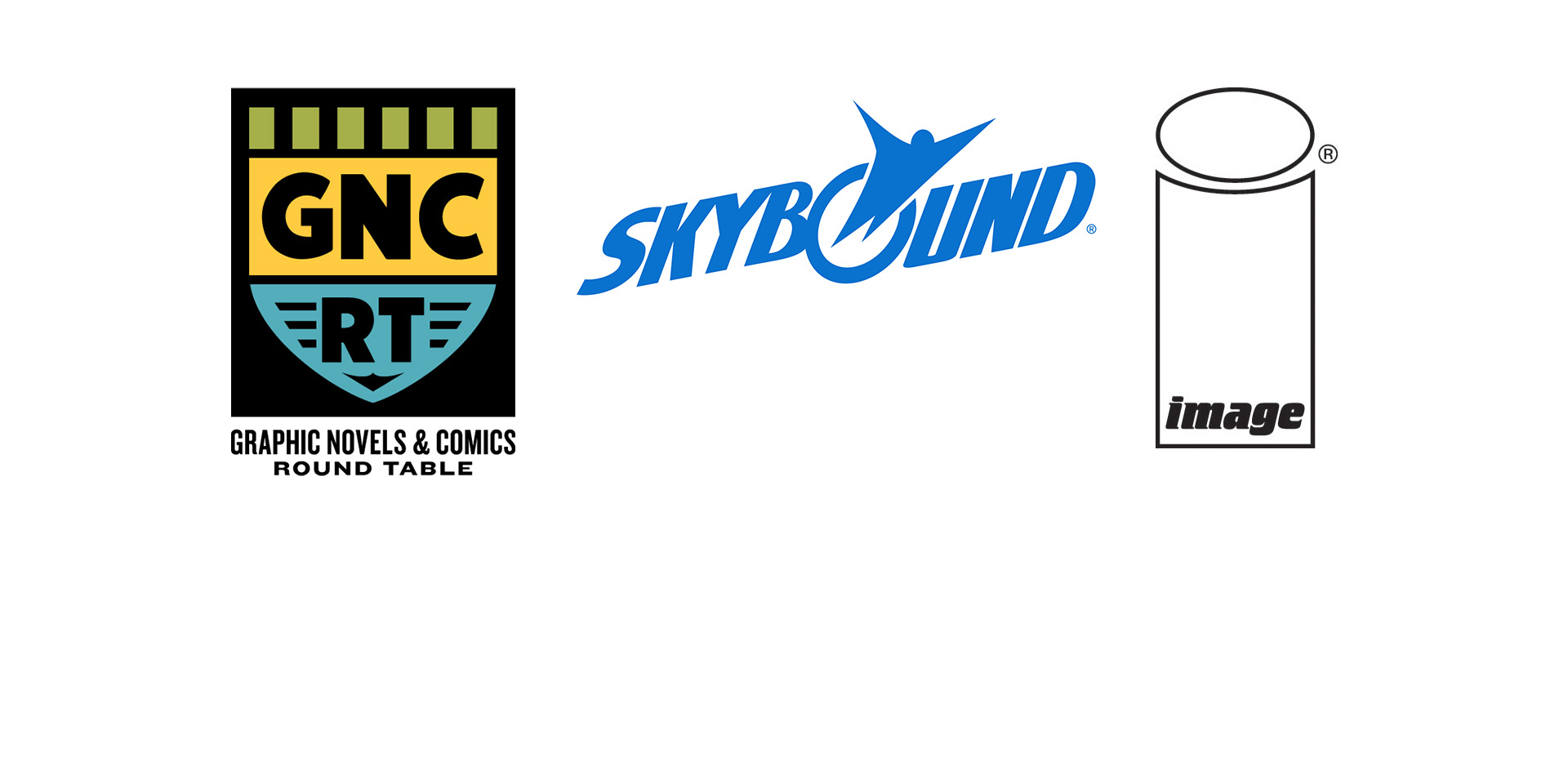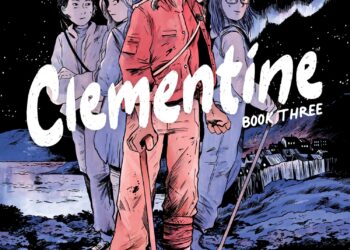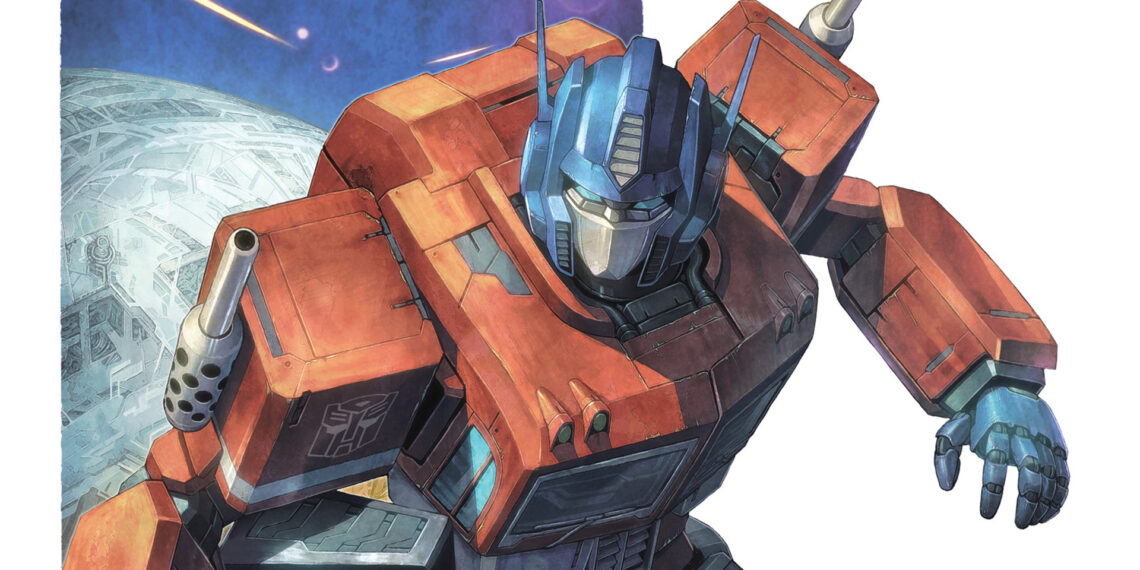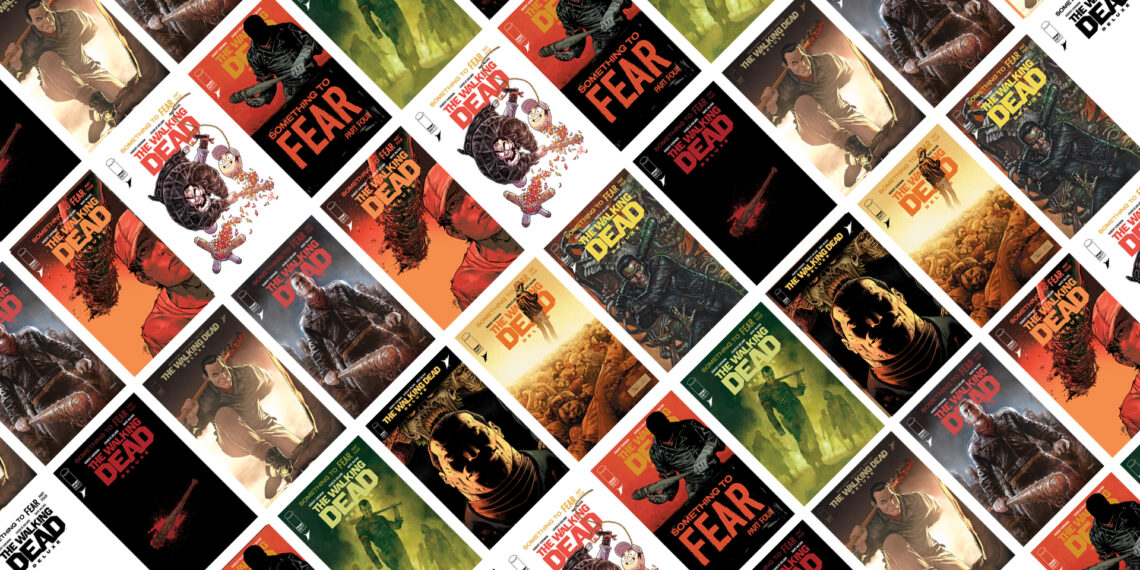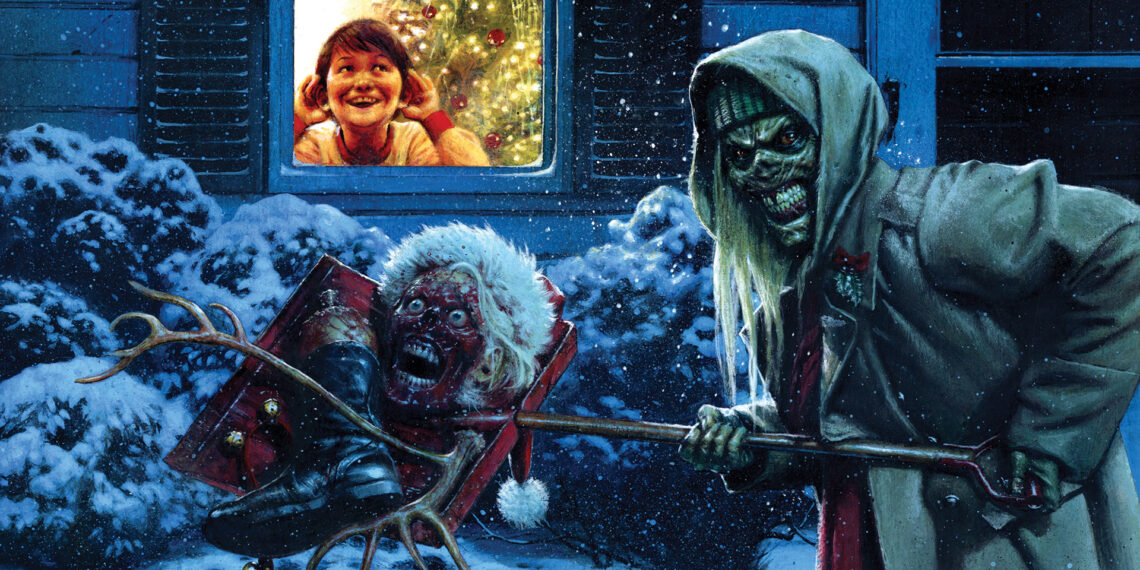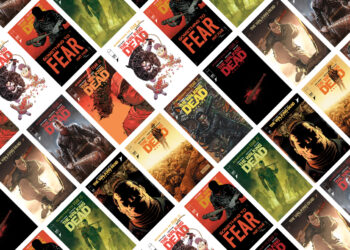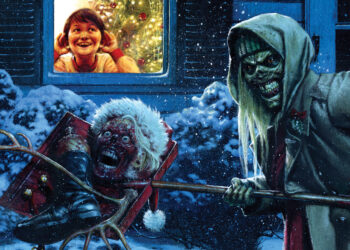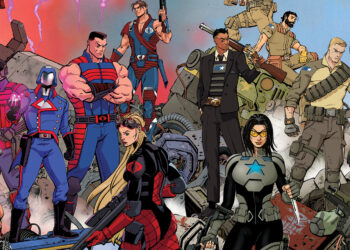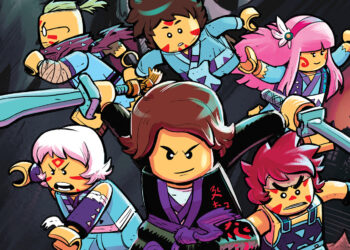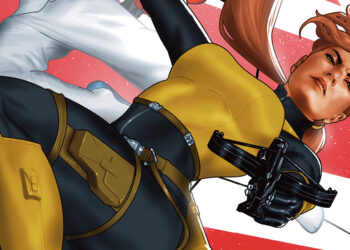These days it’s just as likely new readers will discover comics through their local library as they will a bookstore or comic shop. One of the folks at the forefront of getting comics into libraries is Moni Barrette. The current president of the American Library Association’s (ALA) Graphic Novel & Comics Round Table, Barrette and her group have partnered with Skybound and Image to award a special grant providing funding for library professionals to attend the 2023 ALA Annual Conference. We caught up with Moni to chat about her comics advocacy work and the GNCRT’s mission, as well as her love of Skybound Comet…
How did you come to work with the American Library Association?
The American Library Association, or ALA, is a 180-year-old organization for all types of library workers at every level. The Graphic Novel & Comics Round Table (GNCRT) is the round table for which I’m the current president. A round table within the ALA is basically a governing body for a specific area of library interest. In our case, comics. We have only been an official round table since 2018-2019, but we have a long history of “comics librarians” (the unofficial term) attending comics conventions, having publishers and creators come to our library conferences and really working towards advocacy. Everything from getting books into libraries to, within the library sphere, helping teachers and library workers understand how to catalog comics, how to present it, the proper age curation, all the business that we need to do in-house to help library workers get these books out to people.
GNCRT was officially incorporated just a few years ago. I, myself had been on the board as a member at large for the first couple of years, leading into one year as vice president. Now I’m doing one year as president, and then next year I’ll be called “past president.” I’ll still be involved again in that capacity. Then my sentence will have been fulfilled. [Laughs.]
Did you grow up with comics? Were they something you always championed?
I did not grow up with comics, besides the Sunday newspaper. I think that spurred a lot of my interest in it as a younger adult. There was a little bit of rebellion. It’s something that probably would’ve been frowned upon growing up in my family. Now it’s like, “Comics are cool.” My then boyfriend/now husband of 15 years got me interested in comics by encouraging me. I know that’s the journey of a lot of teachers and other library folks who were like “Comics are just for kids” or “Comics are just superheroes” or “They’re just silly.”
He got me to read some literary comics where I was like, “Wow, there’s a lot more to this than I thought” and just fell in love with them. As a librarian and an educator overall, it’s about the community in comics. The community in any niche or any fandom anywhere. Whatever we can do to keep people reading. Comics is really that gateway because there’s a story for everyone. There’s a comic for everyone nowadays. There’s so much fantastic diversity out there. There are so many things going on. I’m confident that a reluctant reader, whatever level you’re at or whatever your attitude is, there’s something that you’ll be interested in in the comics sphere.
I came in as a fan where I was going to the conventions at that point and reading them on my own. My own library, which I was working at, didn’t really have a lot of comics except for little kids. So I started arguing with our administration, the stodgy old librarian types [who said], “We don’t need that stuff.” I convinced them to have a comics convention in partnership with the local retail shop at the time. That went really well, was really well attended by all ages.
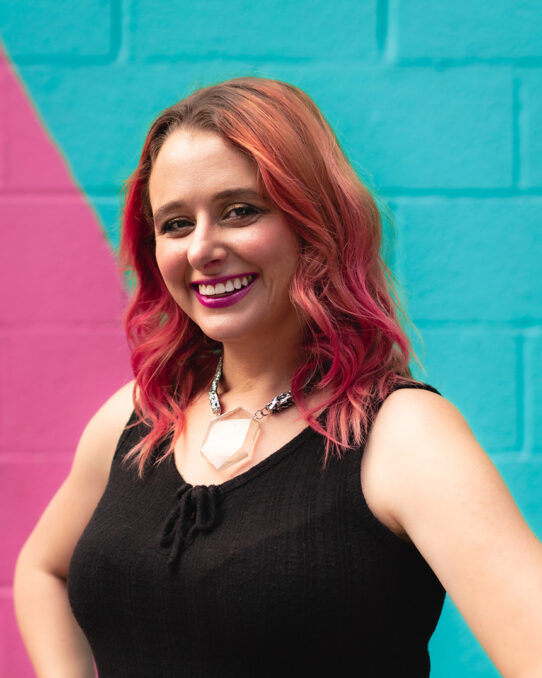
Moving on to my next library job, once I got there, they didn’t have an adult collection for comics whatsoever. What was dangerous about that, as we’re seeing now in the post-2020 era, is that then you had things that were not appropriate for teen audiences – mature reader stuff – in the teen area. I was like, “OK, liability perspective, library admin. If you don’t believe in comics for everyone at least note that I need to pull these out and put these in an appropriate section to find the right readers.” Which led to me arguing with them to get a whole whopping $200 budget to buy some comics. [Laughs.] The adult comic book collection at the library I was at became the third largest collection in the library. Our third most checked out, most read by the community. Which is huge. Because you’re never gonna beat children’s picture books in a library collection for readership. And movies were their second most checked out collection. Adult comics, within six months, became the third most popular thing in the library.
I was able to start talking about that at various conventions, and then leveraging that. That’s kind of where my advocacy began. Teachers and librarians, whatever it is you have a passion for, use that to your advantage. See if there’s an audience you can connect with in your community and build it into… Not just by having the books, but with comic book clubs for all ages, comic book movie-watching times where you discuss. There’s so much you can do within any fandom to really bring people together and get them reading.
What role does GNCRT play at the ALA’s annual conference?
The ALA’s annual conference is the biggest event that ALA as an overall organization has. As a round table, the GNCRT, we’ve always done something. We’ve invited comics creators, comics, publishers.
The comics industry is a business. It has to be. Libraries do have budgets for books. But you never know when you get a library to purchase your book, how many more people are gonna discover it and buy it themselves for their households from that library discovery. So we have always been advocates, when we go to the conference, for having creators and publishers come and visit and get some face time with the librarians who know nothing about comics. They say, “This would be a great book for the kids in my library. This would be a great book for…” whatever purpose. That’s something we excelled at even before we were an officially recognized round table. We do pop-up libraries where we’ll read different comics.
We do projects where people come and make their own comics and we kind of guide them through. Just a lot of 101 for the librarians who don’t know, and a lot of fandom stuff for the librarians who do know.
How did the GNCRT’s ALA conference grant come about?
I’m super excited about it. Thank you to Skybound, thank you to Image, for always being so forward thinking. I dug up a list of existing funding or grant opportunities across libraries for for specific areas of expertise – whether that’s children’s librarians, teen librarians. This is the first ever comics-librarians-specific funding opportunity, to support these workers who have long supported that industry. That’s what was huge. I want everyone to know about this – you all are pioneers in making this happen, we’re pioneers in coming up with this idea, and it’s really exciting.
I get a lot of people popping out of the woodwork to say, “Hey, I have this new book coming out and I’d like to know if a library would be interested in it, how I should age it, how I should pitch it.” I’m doing that on my own time unpaid, and that’s fine. I love that, that’s what library workers do. But then when you think about the fact that a library worker’s job is to be physically in the library at an hourly wage, and now they are traveling to these conferences and these conventions to go learn what’s good in comics. Specifically so they can come back and buy those things for their libraries. So they can tell other librarians about them, so they can tell their readers about them. There’s a lot of advocacy that library workers do on behalf of all books, but particularly in comics, that has, up until now, not had any financial support; when they’re often using vacation time and their own funding to go do these things.
We’re looking at one [grant] with the funding from Skybound specifically, and one with the funding from Image specifically. It’s gonna cover travel expenses, basically reimbursement for what we’re hoping will be a cross section of our demographic as a round table.
We have a lot of library school students, people who are just starting out in the field. We’re hoping to encourage those folks to fall in love with comics librarianship, and feel supported in doing so by getting to attend this conference and have the opportunity to meet the folks at Image and Skybound, to meet creators, to know what’s happening in our space. So that they can become budding comics librarians, and help extend everyone’s best interests after that.
Will the GNCRT be taking part in any upcoming comic conventions?
Yes, we have a convention committee. Right now, we primarily [attend] Reed Pop shows like New York Comic Con. Reed Pop has always given us space, and shows on the East Coast are closer to where more workers are. That’s, again, partially due to logistics and travel expenses. We have folks there who could just drive to the event and maybe not have to get a hotel.
I think I’m about the only person from the West Coast on our board. [Laughs.] So yes, I do San Diego with whatever librarians I can gather around here to help with that. We don’t officially have anything at San Diego, but we would like to do more of that.
One of the things that took a little time… We wanted to future-proof this grant. As an organization that is almost 200 years old, she’s a little slow to change. [Laughs.] I’m so excited that you all are helping us innovate in that field. We wanted to set up this grant so that it could grow. So we’re hoping that other publishers, other comics industry businesses, even other private folks, will think to donate or do what they can to help support library workers. Because conferences are first, but we would love to be supported in coming out to you at the conventions, and meeting fans on your behalf and talking to potential readers from all different demographics about your books and helping sell them at your shows.
What we would love to do this year are things like publisher outreach, where we talk to publishers and creators about how you can get your books into libraries, what libraries are looking for, and any other frequently asked questions. I would love to be able to do that kind of outreach. It’s just more capacity for all involved.
What are your own favorite comics?
It’d be like asking me to choose between my children. [Laughs.] I’m currently a 2023 Eisner Awards judge, so I’m reading everything right now.
But I will say what becomes my favorite are the things I utilized to the advantage of the community that I was in at the time. One of my favorite examples is March, books 1 through 3, by Congressman John Lewis. At the time I was sitting on the council for the One Book, One San Diego. That’s from KPBS, historically, an older white audience. Not really a lot of comics readers among them. With a couple of other people, I advocated that the first ever graphic novel be allowed to be the community-wide read. We pushed it, we formed this little committee amongst ourselves, and we made March the pick.
It went like gangbusters through the entire community. Because it appealed to all ages, it appealed to multiple demographics. We got to do some really cool programs around events and opportunities. I got my first-ever tattoo. [Laughs.] The “Good Trouble” tattoo from that book.
It just really caused a lot of stirs, and put me on the map career-wise and I made a lot of new friends. That was amazing. So March would be my number one from that perspective.
What are your favorite Skybound titles?
I should start by saying I also wrote a nonprofit of my own [Creators Assemble!] and it’s partially to fill that gap between the amazing stuff that ALA is able to do and what the library workers are able to do. The in-between stuff, where there’s red tape involved. My nonprofit works on getting comics into libraries and schools. And so in that capacity I have worked with Skybound a lot on making activity guides and classroom reading guides for Skybound’s books. I definitely have some Skybound favorites. [Laughs.] Everyday Hero Machine Boy is a book that I adore. I had the privilege of meeting the creators at the last ALA conference, last year. That was awesome, I got to do a panel with them. Sea Serpent’s Heir and obviously Tillie Walden’s Walking Dead title Clementine are also favorites. I freaking love Clementine. I’m huge on the Skybound Comet imprint of YA books.
Kid and teen reader books have just leveled the heck up in the last couple of years, and you guys are really on the cutting edge. The thing about YA is that obviously you’re gonna get the younger readers and that’s a huge market. But a lot of adults will read that stuff too. There are so many adults that purposely read that stuff and are super happy to share their thoughts about it.
Thanks so much for your time, Moni!
My pleasure!




